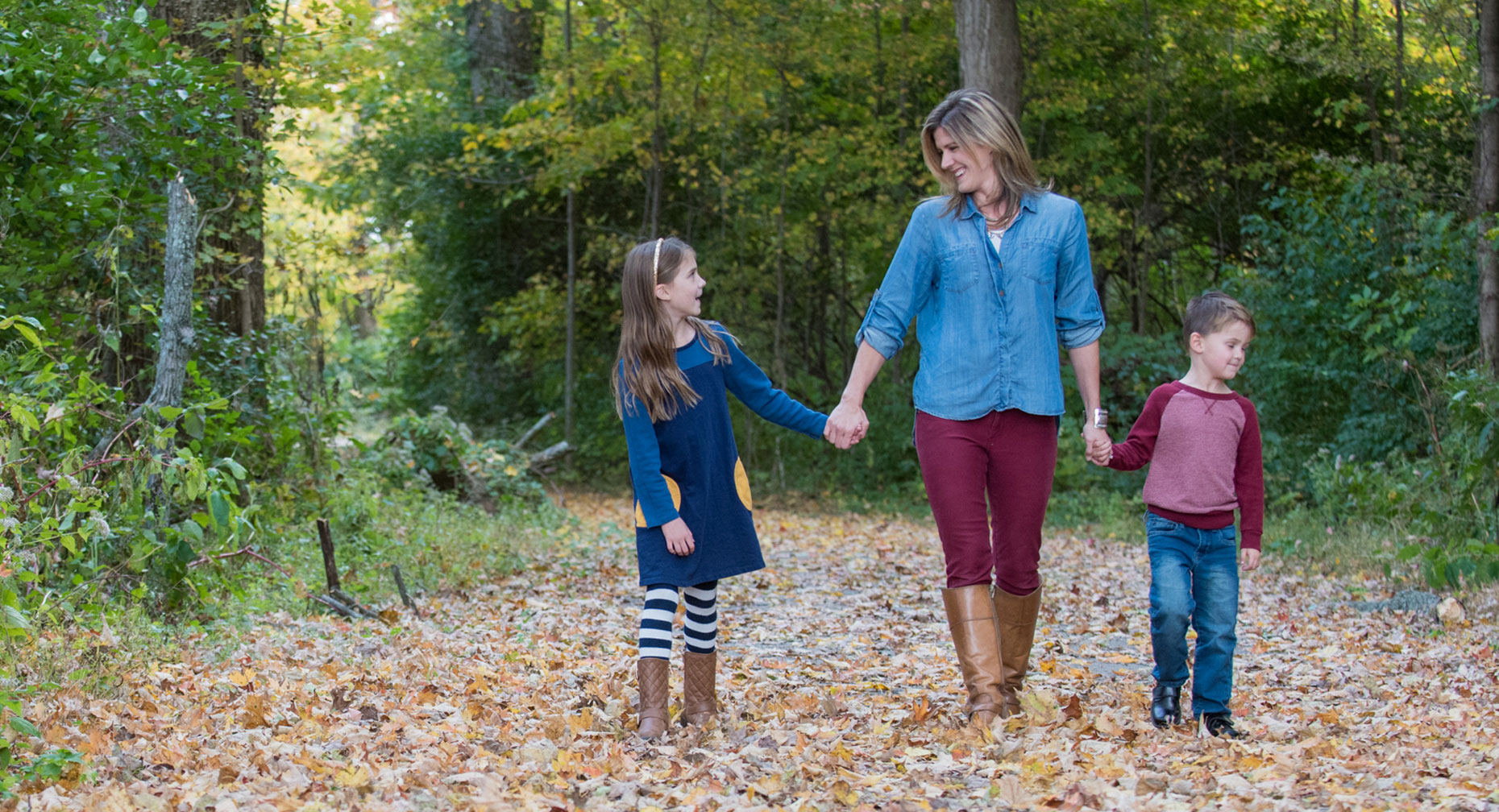Meningitis: How To Protect Your Family

Answer a few questions and we'll provide you with a list of primary care providers that best fit your needs.
Your brain and spinal cord are protected by membranes called meninges. These membranes can become inflamed – a condition called meningitis – when a viral or bacterial infection attacks the fluid surrounding your brain and spinal cord.
Although there are different causes of meningitis infection, symptoms are relatively consistent. Bacterial meningitis, though, requires immediate medical attention as it progresses rapidly and can lead to serious, life-long complications or death. Viral meningitis, on the other hand, is more common and rarely causes long-term complications.
“The three hallmark symptoms of meningitis are high fever, severe headache, and a stiff neck,” explains physician assistant Laura Kramer, MPAP, PA-C. Less common symptoms include nausea with or without vomiting, confusion, decreased concentration, sleepiness, and sensitivity to light. “You can sometimes get a rash, which may lead to seizures,” she adds.
Although meningitis may go away on its own, Kramer advises contacting your health care provider if you or your child have developed meningitis symptoms. “In severe cases you could develop learning difficulties, behavior problems, kidney failure, hearing or vision loss, or even require an amputation of limbs,” she says. Some types of meningitis can be deadly.
“Typically, the sooner you see your health care provider for evaluation and treatment, the better your recovery,” says Kramer. “So if you or your child has any of these symptoms, contact your doctor right away.” A blood test and test of your spinal fluid will help confirm whether you have meningitis.
See a doctor immediately if you or a child has these symptoms, since some types of meningitis can be deadly.
Viral Meningitis
Viral meningitis, the most common type of meningitis in the U.S., is rarely fatal, but it can have long-lasting effects, such as headaches, fatigue, and depression. It is also called spinal meningitis, aseptic meningitis, and sterile meningitis. Children younger than 5 years old and people with weakened immune systems are at highest risk of getting this type of meningitis.
It is most often caused by enteroviruses, which are passed from person to person through coughing, sneezing, or not washing hands thoroughly after using the bathroom. Not everyone with an enterovirus will develop meningitis.
Babies younger than 1 month and people with immune deficiency from disease, chemotherapy, or an organ transplantation are more likely to have severe illness with viral meningitis. If your baby under 1 month old has a fever, is lethargic, and isn’t feeding well, take your child to an emergency department immediately for evaluation for meningitis.
There are no effective treatments for viral meningitis, although antiviral medicine can be helpful with certain viruses that cause the meningitis. Most people will recover from a mild case within seven to 10 days. Doctors recommend rest, fluids, and medicine for pain and fever relief.
Bacterial Meningitis
Several types of bacteria can cause meningitis, a rare, possibly deadly infection. Those most vulnerable are babies, children, older adults, and teens and young adults in a community setting such as a college campus. The germs spread from person to person, mostly through behaviors such as living in close quarters, kissing, and sharing drinks and utensils. Bacteria also can be transmitted by people who don’t wash their hands thoroughly after using the toilet.
In severe cases, seizures, coma, and death within 24 to 48 hours can occur. If not treated immediately, bacterial meningitis can cause permanent disabilities such as brain damage, hearing loss and learning disabilities.
Doctors can treat bacterial meningitis with intravenous (IV) antibiotics. The sooner you begin receiving treatment, the better your chance of surviving without lasting effects.
Other Types Of Meningitis
Though less common, other types of meningitis exist. These include fungal meningitis, a rare form caused by a fungus that spreads through the bloodstream to the spinal cord. It is not spread from person to person. One type of fungal meningitis, called cryptococcus, may be acquired by breathing in soil contaminated by bird droppings. This is the most common cause of adult meningitis in Africa. Other types are associated with fungal spores in certain types of soil and bird and bat droppings.
People most susceptible to fungal meningitis are those with weakened immune systems, such as people with HIV or cancer. The disease is treated with high doses of antifungal medications, usually with an IV in a hospital. There is no clear way to prevent fungal meningitis, other than avoiding bird droppings and soil where fungi live.
Parasites that live in warm bodies of fresh water can sometimes cause meningitis, which has no clear treatment.
Non-infectious meningitis may be caused by disease, medication, drugs, head injury, or surgery. Doctors evaluate each situation to determine the best course of action.
How Can I Protect Myself?
You can protect yourself and help prevent meningitis from spreading by doing the following, says Kramer:
- Wash your hands, wash your hands, wash your hands!
- Don’t kiss anyone who is sick, and don’t share drinking or eating utensils, because meningitis can be transmitted through saliva.
- Sneeze and cough into your sleeve or a tissue.
“Just being aware of the signs and symptoms of meningitis, and practicing good hygiene, can help to stop the spread,” Kramer adds.
Is There a Vaccine?
You can get protection from meningitis via childhood vaccines. "For example, measles, mumps, and rubella are all viruses that can lead to viral meningitis," Kramer says. "By getting the MMR vaccine, you’re not only protecting yourself from measles, mumps, and rubella. You’re also protecting yourself from viral meningitis," Kramer explains. That’s why it’s important that you and your children keep up to date on vaccinations, including:
- Measles, mumps and rubella (MMR)
- Haemophilus influenzae type B (HIB)
- Pneumococcal conjugate vaccine (PCV13)
- Pneumococcal polysaccharide vaccine (PPSV23)
- Meningococcal conjugate vaccine
Talk with your doctor about whether your child should receive the meningococcal vaccine to prevent bacterial meningitis. Two doses are recommended.
The CDC recommends the vaccine for all preteens at 11 to 12 years old, with a booster dose at 16 years to provide teens continued protection during the ages they’re at highest risk.
Answer a few questions and we'll provide you with a list of primary care providers that best fit your needs.
Source: Meningitis Foundation of America; Centers for Disease Control and Prevention; Laura Kramer, MPAP, PA-C





